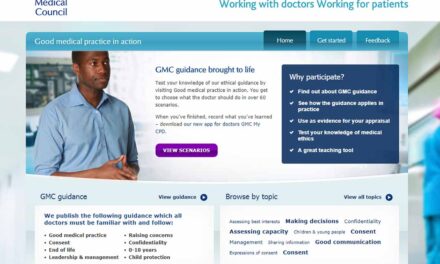Certain proven allegations will result in a “presumption” of impaired fitness to practise by the GMC. What are these and is there any mitigation?
GMC Impairment
Under the General Medical Council’s (GMC) statutory rules, impairment can only be by reason of any or all of the following:
- misconduct
- deficient professional performance
- a criminal conviction or caution in the British Isles (or elsewhere for an offence which would be a criminal offence if committed in England or Wales)
- adverse physical or mental health
- a determination by a regulatory body responsible for the regulation of health and social care, either in the United Kingdom or overseas
- not having the necessary knowledge of English.
Impairment means “weakened or damaged” or “damaged in a way that makes something less effective”. Broadly speaking, in the context of fitness to practise, “impairment” refers to circumstances where a doctor’s ability to practise safely and effectively has been weakened, damaged or negatively affected. This may mean that they should not practise at all, or that they should be limited in what they are allowed to do.
It must be pointed out that the GMC, or one of its committees, will not consider allegations, relating to the categories above, as separate issues. GMC guidance states that:
“There may be cases that involve concerns about a number of aspects of a doctor’s fitness to practise. In making a decision, it is the cumulative effect of all impairing factors that must be taken into account.”
Presumption of impaired fitness to practise
Not all allegations of impaired fitness to practise are treated as the same. There are certain categories of case where the allegations, if proven, would amount to such a serious failure to meet the GMC’s standards, that there will be a presumption of impaired fitness to practise. According to the GMC, these “tend to fall within seven main headings”:
- sexual assault or indecency
- sexual or improper emotional relationships with a patient or someone close to them
- violence
- dishonesty
- unlawfully discriminating in relation to characteristics protected by law
- knowingly practising without a licence
- gross negligence or recklessness about a risk of serious harm to patients.
Mitigation and Evidence of Insight and Remediation
Where there is evidence to support allegations relating to any, or some of the seven headings above, in order to avoid a referral to a medical practitioner’s tribunal, the presumption of impairment must be rebutted.
The presumption of impairment may only be rebutted where:
- in violence and dishonesty cases, the nature of the conduct is such that the doctor would not pose a risk to patients, to public confidence or to proper professional standards and conduct i.e. it is at the lower end of the spectrum of seriousness; and/or
- in all presumption of impairment cases, there are exceptional reasons for concluding that a referral to tribunal is not necessary.
Whilst each case will be determined on its individual merits, GMC guidance says, in relation to mitigation:
“Arguments in mitigation can include matters which relate to the specific events that are said to have occurred, ’mitigating circumstances’. Mitigating circumstances may relate to the environment in which a doctor was working and may also include ‘personal factors’ which relate only to the individual doctor but may have impacted directly on the circumstances of the events giving rise to the concern. Personal factors include matters such as a personal emergency, a health condition or other personal issues capable of influencing a doctor’s behaviour and impacting the events in question.”
Due to the presumption of impaired fitness to practise, evidence of insight and remediation, according to the GMC, will carry less weight:
“Cases in which there is a presumption of impaired fitness to practise, however, are unlikely to fall into the category of cases that are easily remediable.”
This does not however mean that insight and remediation will be discounted entirely. Impairment is defined in the present tense, or in other words, whether the doctor’s fitness to practise is currently impaired.
Furthermore, insight and remediation could prove important at the sanction stage of the process. Genuine and clearly evidenced insight and remediation may very well result in less severe sanctions or, in rarer instances, no action.
Insight and remediation often takes a long time to achieve, and evidence which also points to the importance of seeking legal advice at the earliest possible opportunity.
Insight Works Training will help give you a clear and easy to follow understanding of the regulatory process, explanation of the central role of impairment, how to approach insight and remediation, how to evidence this at your hearing and a directed approach to presenting your learning with evidence in writing and verbally.
Kings View Chambers
With over 30 years combined experience, Kings View Chambers have established itself as one of the best when it comes to fitness to practise defence. We fully understand that fitness to practise defence is not merely about processes and procedures. We also understand that we are working with people who are anxious and worried about what investigations might mean for them, their professions and the reputations.
We are proud to be rated ‘excellent’ by our clients. Our commitment to client care is genuine in both seeking the very best outcomes for our clients, but also ensuring we do what we can to support them through the process.
Disclaimer: The accuracy and information of news stories published on this website is accurate on the date of publishing. We endeavour to update stories if information change. You can contact us with change and update requests. Where possible, we will link to sources. Content on this website is for guidance purposes only. We cannot accept any responsibility or liability whatsoever for any action taken, or not taken. You should seek the appropriate legal advice having regard to your own particular circumstances.






Recent Comments